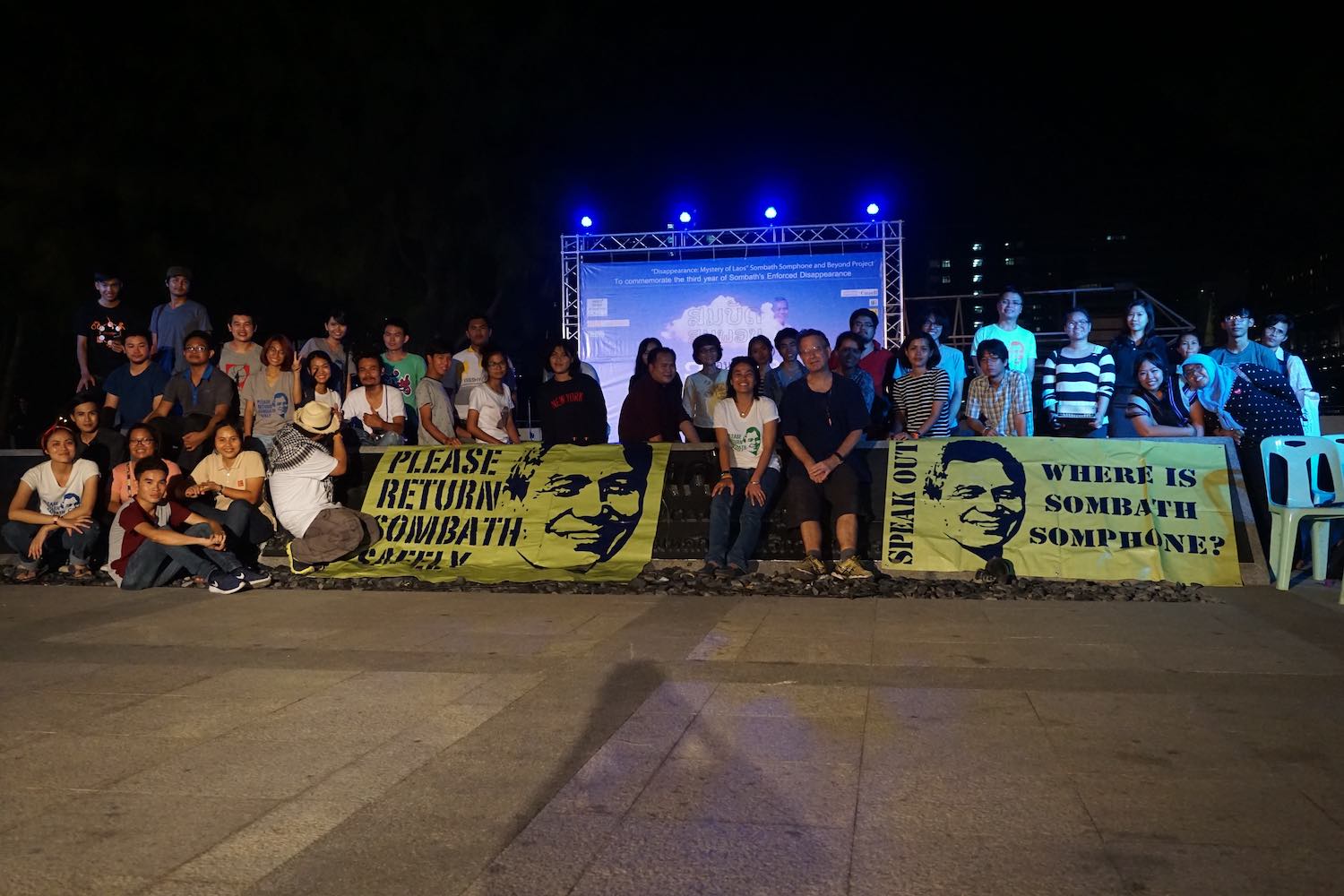The Asahi Shimbun: 25 March 2014
Hideki Wakabayashi, Secretary General, Amnesty International, Japan
On Dec. 15, 2012, in the Laotian capital of Vientiane, 62-year-old citizen activist Sombath Somphone was stopped by police at a checkpoint and taken away by unidentified abductors.
The kidnapping was recorded on video, but the Laotian authorities denied any involvement in the incident. Despite pleas from the international community, the authorities today still have not taken any concrete measures to solve the case, and there are even suspicions of a cover-up.

Sombath had worked on poverty issues in Laos and had been long involved in advising farmers and in environmental education. For this meritorious service, in 2005 he was the recipient of the Magsaysay Award, an honor that is called the Nobel Prize of Asia.
On Dec. 15, 2013, exactly one year after the kidnapping, Prime Minister Thongsing Thammavong of Laos, who was visiting Japan for the ASEAN-Japan Commemorative Summit Meeting, held a top-level meeting with Prime Minister Shinzo Abe.
We at Amnesty International Japan, together with organizations such as Human Rights Watch, wrote a letter to Abe requesting that he bring up this kidnapping and express Japan’s grave concern during the meeting. Two days before that meeting, we went with Human Rights Watch to the Laos Embassy in Tokyo, where we tried to deliver a letter to Thongsing urging him to take any measures toward a fair investigation and a resolution concerning Sombath’s forced disappearance, but the embassy refused to accept the letter, and we read it out loud outside the building.
A summary of the top-level meeting with Laos is posted at the website of Japan’s Foreign Ministry, but it reports nothing about Abe bringing up the subject of the Sombath case. Meanwhile, Abe requested Vientiane’s support for a human rights resolution on North Korea at the United Nations. In contrast to Tokyo’s action, U.S. Secretary of State John Kerry and British Minister of State at the Foreign and Commonwealth Office Hugo Swire, as well as numerous citizen organizations around the world, have expressed their concern over this unsolved disappearance and have issued statements calling for a fair investigation.
HUMAN RIGHTS AS UNIVERSAL VALUE
We understand the “values diplomacy” that Abe advocates as something that spreads the values and ideas of human rights, democracy and rule of law, and that strongly pushes for solidarity with countries who share these values. Human rights are an issue that other countries’ governments want to avoid, but they are a universal value that the international community should safeguard.
Unfortunately, there are many ASEAN nations, such as Vietnam, Myanmar, Cambodia and Singapore, that are difficult for us to call good protectors of human rights. ASEAN adopted a Human Rights Declaration in November 2012, but there was inadequate consultation with citizen organizations concerning the draft declaration, and its content strayed far from international human rights standards.
Last year at the U.N. Human Rights Council, the Japanese government and the European Union took the initiative in setting up a Commission of Inquiry to investigate abductions and other North Korean human rights issues. Yet Japan abstained from voting on a resolution concerning Sri Lankan human rights issues that was adopted on the same day. This move raised the eyebrows of the majority of countries–in the West and elsewhere–that voted in favor of the resolution.
Making statements on human rights issues is not interference in domestic affairs. It is important to clearly point them out for the sake of the country in question as well. If Prime Minister Abe’s “values diplomacy” shifts stance according to the country involved, then not only is it inconsistent as a diplomatic policy, but it is also conducive to the “diplomacy of opportunism” that ignores the human rights of the people suffering in that country.
